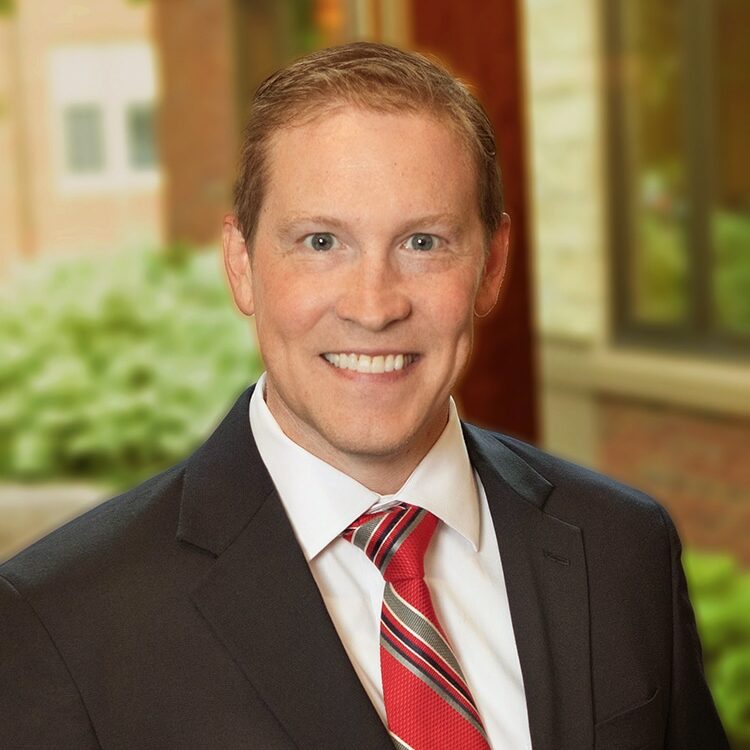Team Member Profile

David Webb, CFP®, CFA®, MBA
Integrated Wealth Advisor
Professional Biography
David Webb is an Integrated Wealth Advisor at Carlson Capital Management. As part of the Advisory Team, David partners with clients and their families, providing the firm’s fully integrated wealth management experience including investment management, retirement modeling, estate and educational planning, and all other aspects of general financial planning and client care. In this role, David also connects clients with the firm’s specialists for overall portfolio management as well as direct access to expertise in areas such as tax planning and insurance analysis.
David joined CCM with over 20 years of experience in the investment and financial services industry. He received an MBA from the University of Minnesota’s Carlson School of Management and graduated from the University of Wisconsin–Madison with degrees in Finance, Investment & Banking and Real Estate. David holds the Certified Financial Planner™ designation granted through the Certified Financial Planner Board of Standards. He also holds the Chartered Financial Analyst® designation and is a member of the CFA Institute and CFA Society of Minnesota. David enjoys working closely with clients to help them navigate ambiguity, break down complex situations into discrete components, and inspire them to achieve their personal and financial goals.
David resides in Woodbury, Minnesota with his wife, Heather, and their three children. He enjoys speaking about personal finance and has been quoted or featured in Investment Advisor, Fortune Magazine, and Morningstar Advisor. An Eagle Scout and Scouts BSA leader, David is an active community member and has spent time serving on the boards of the Freshwater Society, the Carlson School Funds Enterprise, and King of Kings Lutheran Church.
Personal Thoughts
One of the most difficult moments in my life was waking up one morning in high school and walking into our family kitchen to see my mother and father distraught and in tears. The night before, our family garage had been burglarized and all of Dad’s critical and valuable work tools were missing. This was a huge blow because not only was my father—a solo general contractor—our only source of income, but those tools were quite valuable and represented the reinvestment of many years’ worth of profits back into his business. I didn’t bother to ask if the tools were insured, but a general feeling of vulnerability swept over me, and my mental construct of Dad’s heretofore invincibility was shattered. Dad’s legendary work ethic and ability to provide for his family were symbiotically tethered to those tools—and protecting what he had accumulated over time was paramount to our family’s financial success. This was one of my earlier “money scripts” that likely shaped how I think about risk and the importance of understanding and protecting what is most valuable—whether it be your property, your ability to earn a living, or your children’s future educational options. Warren Buffett captured it best when he said, “Never risk what you have and need for what we don’t have and don’t need.” In the end, it’s all about getting your priorities right.
At about the same time, I had just participated in a stock picking contest as part of my Home Economics class, which encouraged me to learn more about personal finance. I probably checked out every investment book at the local library that I could get my hands on. A lot of what was published was nonsense, but I did not know it at the time. Fortunately, one key concept rang clear: the power of compounding. My young brain was captivated, and I decided to open an IRA. At the time, I was too young to drive but had earnings from my own lawn-mowing business along with support from my parents. To this day, I have fond memories of Dad driving me “downtown” to Marquette Avenue where all the major brokerage houses had offices so that I could open an account. Over the years, I’ve learned that those with the focus to be intentional about the financial decisions they make are often the most successful. Taking that lesson to heart, I now view myself as much of a coach as an advisor so that I might bring out the best in others. Great progress can be made by putting one financial foot in front of another—day after day. Much like compounding.
Featured Video and Quote
"Over the years, I’ve learned that those with the focus to be intentional about the financial decisions they make are often the most successful."